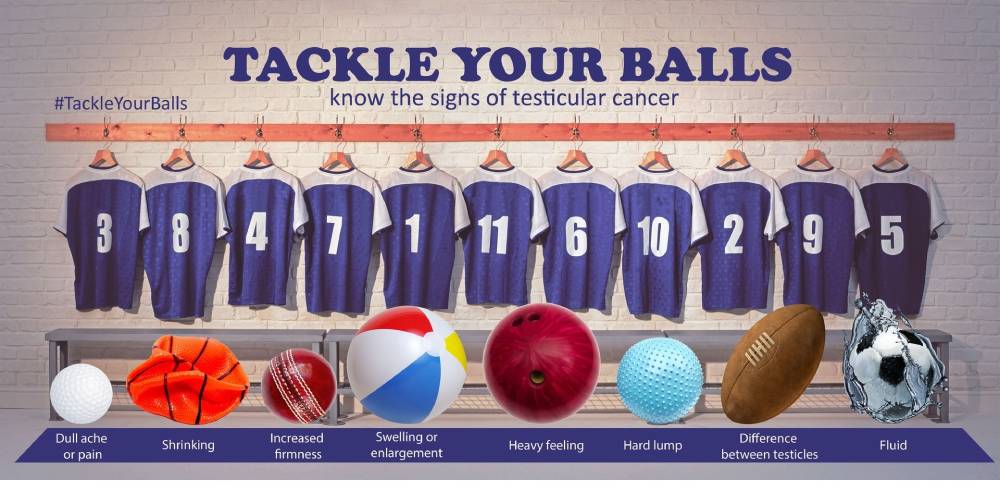Wright Hassall are calling for a more accessible approach to "help men to help themselves when it comes to their health". This comes off the back of the firm seeing an increase in enquiries from men worried about their health and medical treatment.
“Research shows many men leave their health to chance, sometimes with severe or life changing consequences. Our tongue in cheek #TackleYourBalls campaign is designed to encourage people to share the message. The importance of men taking responsibility for their health and checking for signs of illness cannot be understated. It’s not uncommon for us to receive enquiries for compensation from men who have left seeking medical advice too late”.
Taking sixty seconds after your shower to check your testicles might seem like an ordeal. You’re in a rush; you’ve pressed snooze on your alarm twice already and those sixty seconds could be spent getting closer to setting off on your morning commute. But consider the consequences. You can’t afford not to check, and taking that time to check might add years to your life.
Maybe your reluctance is because you don’t really know what you’re looking for? That’s why we’ve put together a quick and easy guide that highlights some of the warning signs of testicular cancer.
It’s time to #TackleYourBalls
Signs and symptoms
A dull or sharp ache in the lower stomach, groin or scrotum
It’s not necessarily just your testicles that need to be monitored. If you start to experience a dull or sharp ache in your lower stomach, groin or scrotum then consult your GP.
Shrinking of a testicle
This is not a common symptom and can be caused by many things. If you notice one of your testicles shrinking, even if you have no pain or other symptoms it is important to see your GP for an examination.
An increase in firmness of a testicle
If you believe that the texture of a testicle has become leathery, and the testicle itself also feels firmer, this may be a symptom of testicular cancer. Go and get it checked.
Swelling or enlargement of a testicle
This is often the same symptom as a lump, but it’s worth separating the two because the swelling can sometimes enlarge beyond the size of the pea and become more noticeable. If you have a swelling, but wouldn’t necessarily describe it as a hard lump, you should still consult your GP.
Heavy feeling in your scrotum
It may feel like nothing in particular, but you notice your scrotum feels heavier than usual. If you are unsure, get it checked out.
Hard lump in a testicle
A hard lump is the most common symptom and is often painless. When feeling your testicles, this will likely feel the size of a pea, though it may be larger. If you encounter any lumps, regardless of whether they’re on or in your testicle, make sure you see your GP to get them checked
Difference between testicles
It is normal for one testicle to be a difference size to the other, and for one testicle to hang slightly lower than the other. However, look out for any other changes in shape or consistency between the testicles.
A collection of fluid in the scrotum
If you begin to notice a build of fluid in your scrotum, ensure you consult your GP.
How to check
There are no set rules on how often you should check your testicles. Doctors recommend that men check their testicles on a monthly basis. This allows you to become familiar with what looks and feels normal for you.
It’s advised to check your testicles after a bath or shower because the skin of the scrotum is softer and relaxed. It’s also a good idea to stand in front of a mirror so you can look for visible changes.
- Check one testicle at a time.
- Hold your scrotum in the palm of your hands.
- Taking each testicle in turn, roll it between your thumbs and fingers. You are feeling for any smooth lumps or hard bumps.
- Check and feel for any changes in consistency or size.
It’s important to remember only 4% of testicular lumps and bumps are cancerous. However, identifying any issues early helps with treatment and outlook. If you have any concerns, you must speak with you GP, and if you are still concerned, it is worth considering a second opinion, as cancer misdiagnosis or late diagnosis can be devastating for you and your family.
(source: NHS)




